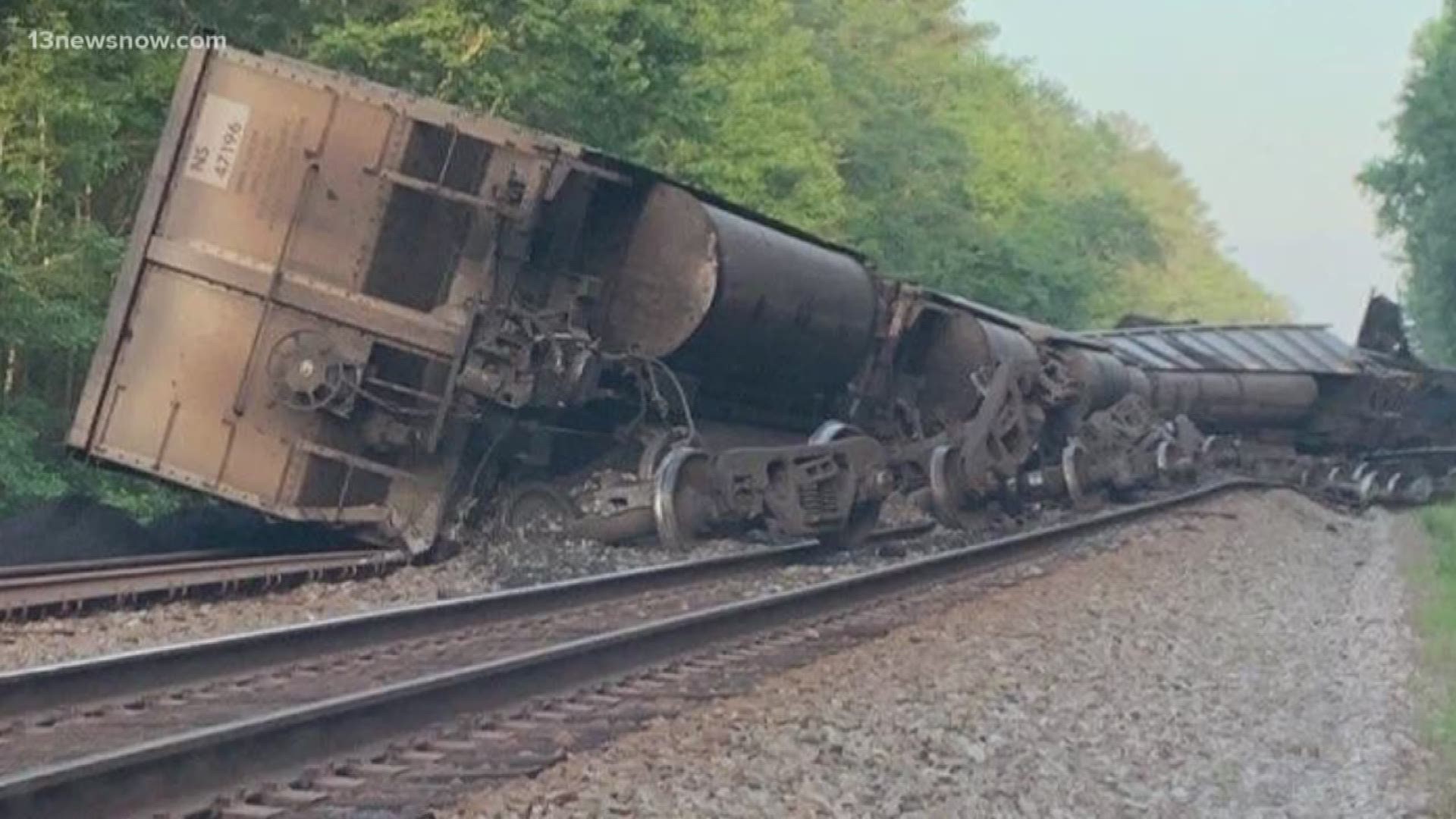CHESAPEAKE, Va. — After a Norfolk Southern train derailed going through the Great Dismal Swamp National Wildlife Refuge Tuesday, it’s unclear what the environmental impact will be.
Manager of the Great Dismal Swamp, Chris Lowie, said the derailment was a shock.
"It was a wow factor when I walked up to the site. And it was just railcars, open railcars that really had been accordioned together, most of them were perpendicular on the track,” said Lowie.
Lowie said the 36 cars of coal spilled into water-filled ditches along the track.
"The biggest concern is to the aquatic life and water chemistry. There are heavy chemicals in the coal fines, and when that gets into water, they combine, and those heavy metals can leech out of the coal and remain in the water and the soil," said Lowie.
Lowie said that makes it possible for the concentration of metals to move through the food chain.
"From aquatic invertebrates and bugs that are in the water that fish eat, the herons eat the fish, or a snake eats a frog. It all works its way up,” said Lowie.
Lowie said he hopes that the cleanup process is fast and contains the coal.
"Getting it out as soon as possible, like a couple of weeks, would be great. The longer it's out there, the more impact it could potentially have,” said Lowie.
It’s still too soon to know the long-term impact the spill may have on the environment, so Lowie said they will be monitoring the area.
"We don't know the extent of the impacts from the wreck and sampling will be conducted and monitoring will be conducted following cleanup,” said Lowie.
A spokesperson from Norfolk Southern said:
“Initial reports indicated that Norfolk Southern experienced a derailment of a coal train yesterday, west of Portlock near the Suffolk/Chesapeake border. Norfolk Southern has since confirmed that 36 loaded cars of coal derailed within the boundaries of the Great Dismal Swamp National Wildlife Refuge at 4:20 a.m.
There were no reported injuries. The coal spill is confined to a relatively small area adjacent to NS’ tracks and there is no impact to any major waterway.
Norfolk Southern operations and environmental personnel are on-site working closely with the U.S. Fish and Wildlife Service, the U.S. Army Corps of Engineers, and the Virginia Department of Environmental Quality to coordinate cleanup efforts and develop an environmental restoration plan.”

